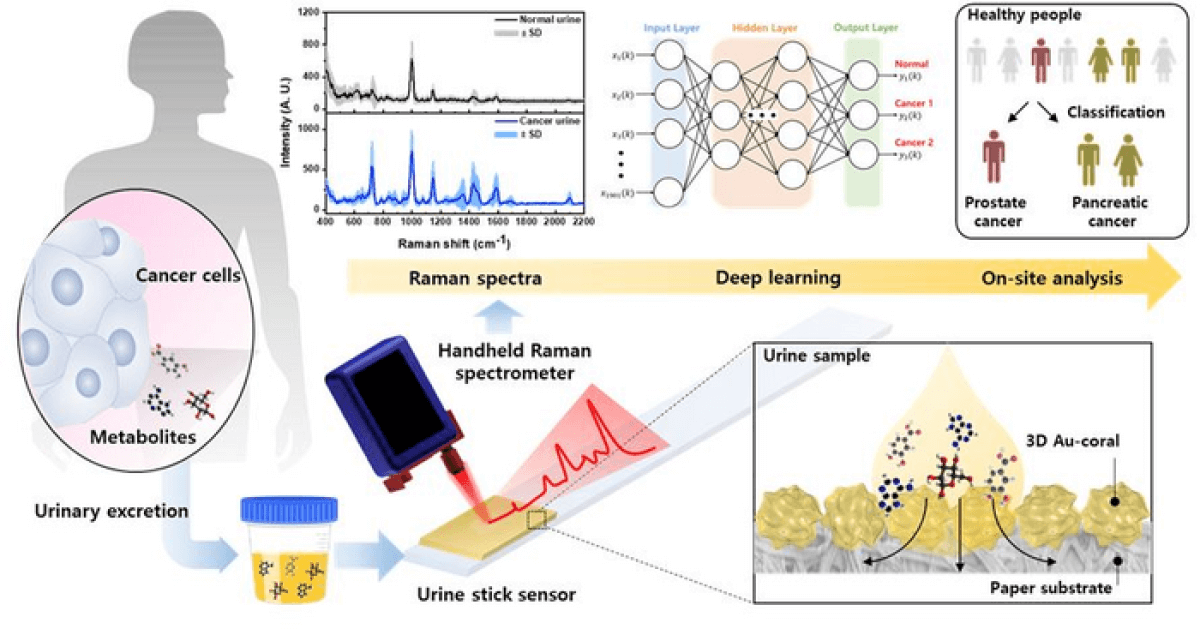SEOUL, South Korea — A simple urine sample may be all you need to diagnosis cancer soon. Researchers in South Korea are developing a new rapid test that looks at the metabolites in urine which reveal the presence of certain cancers in the body. Their success is paving the way for a simple strip-type sensor that alerts patients long before life-threatening symptoms emerge in late-stage cancers.
Right now, the team says this test can detect prostate cancer and pancreatic cancer with near-perfect accuracy. The test works by irradiating light after placing a small volume (10uL) of urine droplets on the testing surface.
Study authors focused on the differences in metabolomic components present in the urine of cancer patients and healthy people. When cancer cells start to multiply in a person’s body, they secrete different metabolites into urine because the disease is altering the patient’s metabolism.
Researchers developed a surface-enhanced Raman scattering sensor which amplifies the signs of these metabolites by more than one billion times. They did this by forming a coral-shaped plasmonic nanomaterial on porous paper. When scientists put a patient’s urine into the sensor and irradiate it with light, the cancer metabolite signals literally “light up” on the sensor surface. Using artificial intelligence to analyze their results, the team was able to distinguish up to 99 percent of prostate and pancreatic cancer patients from healthy samples.

Current cancer tests can detect the disease too late
Study authors note that present-day cancer diagnostic techniques typically use blood tests and radiological scans to find tumors. Many people at high risk also track their cancer risk through annual health checkups. However, all of these methods can end up finding the disease at later stages, delaying treatment and putting the patient at a higher risk of death.
This new test uses a biological sample (urine) that is easy to obtain and can reveal the presence of cancer quickly and right at the testing site — similar to a pregnancy test. The team adds that strip tests like these would also be much more affordable than other diagnostic techniques.
“In the case of cancers where the diagnosis method is not well known, such as pancreatic cancer, it is difficult to detect and the survival rate after initial diagnosis is low. It is known that 14 pancreatic cancer patients die every day in Korea, and the economic cost per person is about 63 million won per year,” says senior researcher Ho Sang Jung of the Surface & Nano Materials Division of the Korea Institute of Materials Science (KIMS) in a media release.
“Since early diagnosis is the most important for incurable diseases such as cancer, we expect this technology to provide a new diagnostic method.”
The researchers are currently working on making their test sensitive enough to detect other forms of the disease, including colorectal and lung cancer.
Study authors described their new urine test in the journal Biosensors and Bioelectronics.

